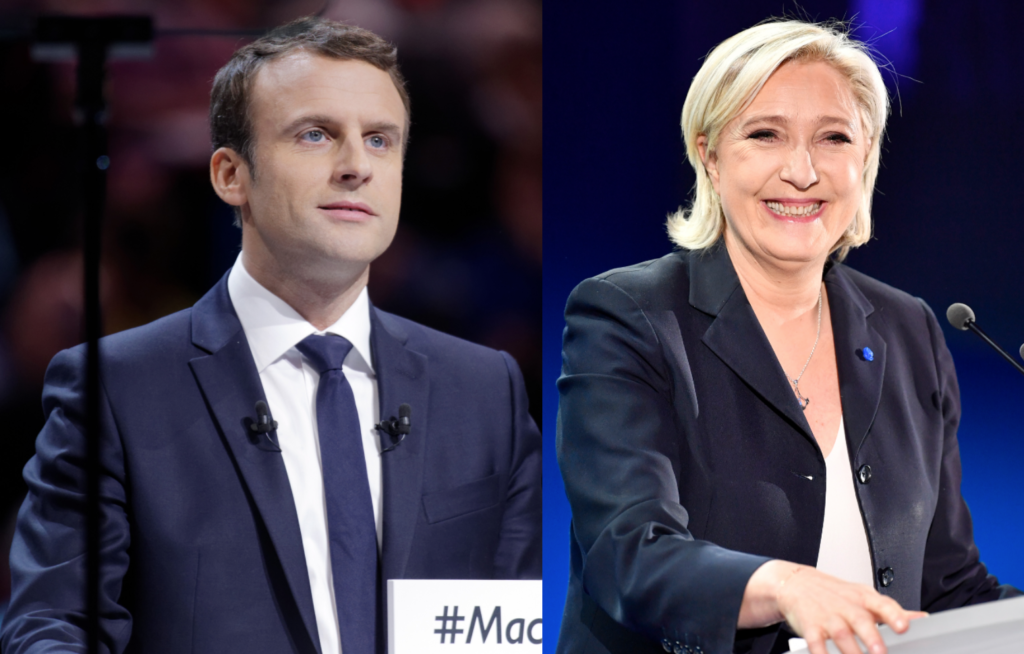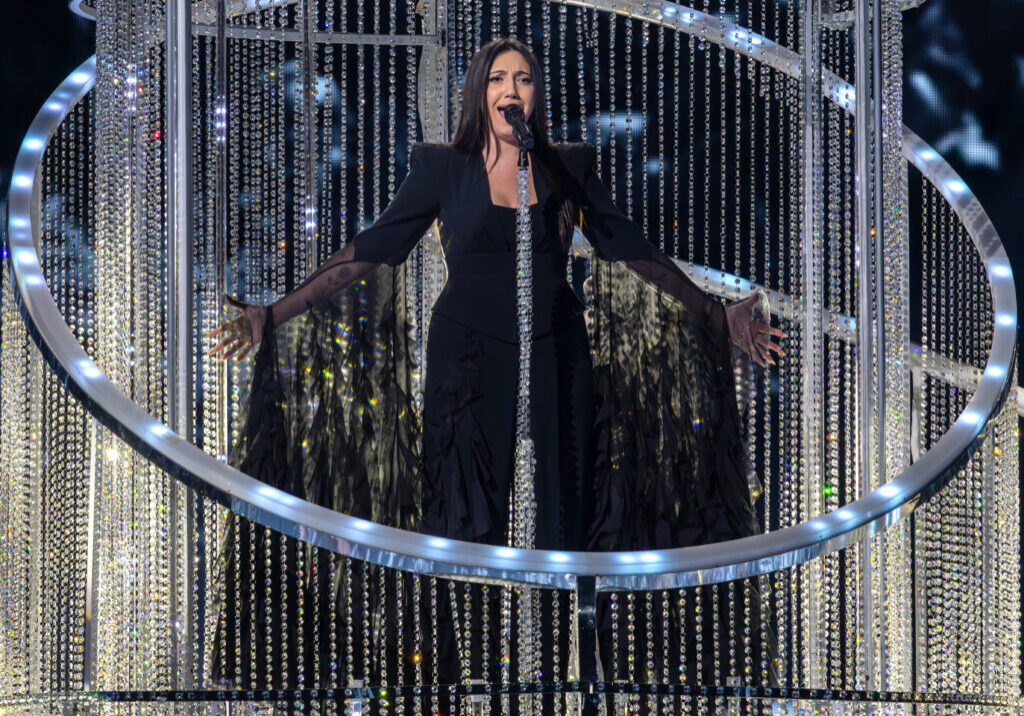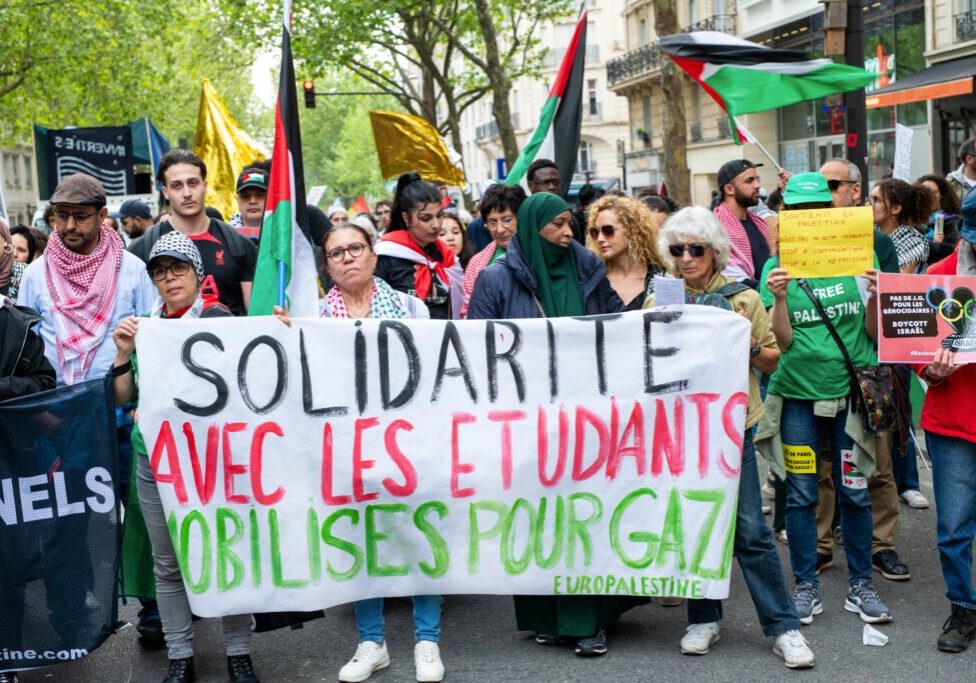Australia/Israel Review
Another French Revolution
May 4, 2017 | Anshel Pfeffer

Anshel Pfeffer
The exit polls clearly indicating that Emmanuel Macron and Marine Le Pen were through to the second round of the French presidential election were barely in before the main right-wing party’s candidate, third-place Francois Fillon, as well as fifth-placed Socialist candidate Benoit Hamon, conceded. Within the hour, Fillon and Hamon urged their supporters to vote on May 7 for centrist Macron, and more importantly, against the ultra-nationalist Le Pen.
Nearly all major political figures in France swiftly followed suit. Many of them resent Macron, who has single-handedly smashed the old party structure of the Fifth Republic, winning the first place (and by all polls, in two weeks the presidency) with a party that has no MPs and was founded only one year ago. But against Le Pen’s National Front, everyone from the conservative right to the Socialist Left is united. Everyone that is except for the man in fourth place, the Left Front’s candidate Jean Luc Melenchon.
Ostensibly, the man of the far-left would be the furthest away from Le Pen and the first to join the front against her. Instead Monsieur Melenchon, when he finally broke his silence two hours after the exit polls, said that he was waiting for the final results, which wouldn’t have made any difference for him anyway, and told his supporters to vote “with their conscience”. What about the far-left’s proud claims to be anti-Fascist? It seems that the far-left’s fight against the far-right can only take place without the centre.
Not that there should be any surprise that Melenchon doesn’t see any advantage in backing Macron over Le Pen. Between the two of them he shares much more with the lady of the right. They both prefer to ally France with Vladimir Putin’s Russia. Both favour leaving the European Union, the joint Euro currency and the NATO alliance. Their trade policies are both protectionist and both see Angela Merkel’s Germany as France’s main rival, if not enemy.
Many, if not most of Melenchon’s idealistic young supporters (polling analysis shows that together, Le Pen and Melenchon won a majority of younger voters) are of course scandalised by the claim that far-left and far-right are not that far apart, but the fact is that Western politics are no longer about left against right. The main dividing line is increasingly between centrist politicians, who are open to the world and don’t hear globalisation as a dirty word, and those on what were once the fringes of the political spectrum, who want do pull their countries out of international alliances and re-embrace old orthodoxies, whether nationalism or archaic socialist “internationalism”, which is simply a byword for anti-Americanism and a fascination with third-world “revolutionary” dictators.
They are the supporters of Bernie Sanders and the Green Party in the US who refused to vote for the “corrupt warmonger” Hillary Clinton, ensuring the rise of Donald Trump. The much-overlooked voters from the British left (including many comrades of Labour leader Jeremy Corbyn) who joined the nationalist right in voting to leave the European Union. On the other side are the moderate branches of what were once the great mainstream parties, that have since been hollowed-out and torn apart by polarising ideologues. In the US, the Republican and Democratic parties still remain, though they are less clear from cycle to cycle what they stand for. In Britain, the imbalance is about to create in the June 8 election one all-conquering, rampant Conservative Party, towering over the carcass of Corbyn’s Labour.
In France, the process is more advanced, with the main parties no longer contending for power. It is yet unclear what will come in their place and how soon-to-be President Macron plans to go about building his own power-base. But a new political creature is about to be born.
The weeks until the second round in France will not be enough to define these new politics. Many on the far-left and far-right will say they are not new at all, simply the establishment and the old elites against the outsiders, the haves against the have nots, the Rothschild bankers against the principled radicals. To a certain degree they are telling the truth. But neither are their politics particularly new. Much in the way the radical left and the ultra-nationalist right are now making common cause against the “establishment”, the European Union, NATO and the rest of democratic order that has ensured peace and prosperity in the West for over six decades, their predecessors found common cause in the past.
You don’t need to be a historian to list the milestones across the 20th Century when the absolutists and purists of left and right found it easier to engage with each other rather than to ally with the democrats in the centre. Nor the many politicians and ideologues who found it much simpler to cross the bridge between Marxism and Fascism. As the consensual politics of the post-war West are crumbling under an onslaught of fake news and alternative facts, the same dynamic is being played out in very stark contrast. The frontlines of an old-new politics were once again redrawn last month in France.
Anshel Pfeffer is a British-born journalist at the Israeli daily newspaper Haaretz covering military, international and Jewish affairs. © Haaretz (www.haaretz.com) reprinted by permission, all rights reserved.
Tags: Europe






